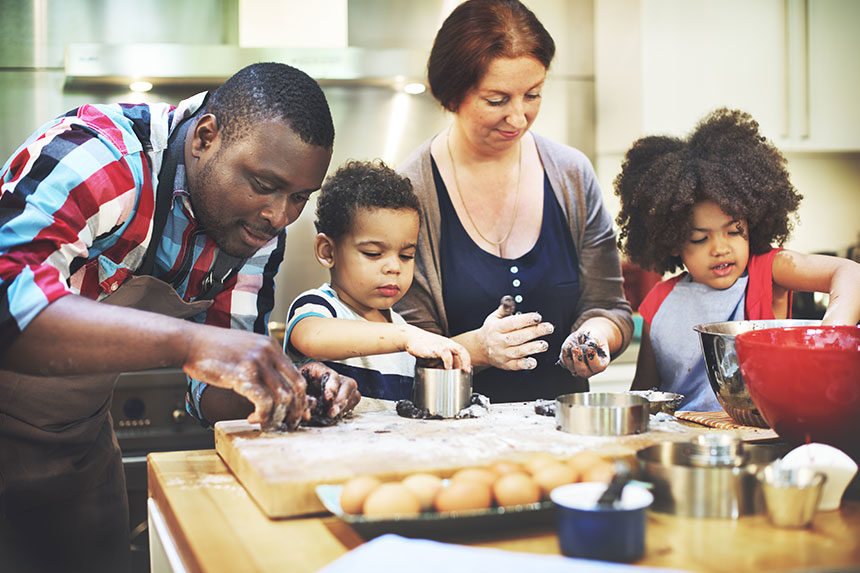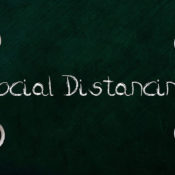This is a question that I’ve been asked frequently of late by family, friends, clients, the media, and random people from whom I get emails, calls, and blog post comments: Will the COVID-19 crisis change us? This question is actually far more complex and nuanced than it might initially appear to be. Certainly, the pandemic has impacted everyone to varying degrees from the tragic (the death of loved ones, financial ruin) to the mundane (stuck in our homes for most of the day, can’t visit family or friends) to the seemingly absurd (having to wash our groceries when we get home, worry that our pets will transmit COVID-19). There is no doubt that the COVID-19 crisis has disrupted our lives in ways large and small.
The focus of this article (as those I’ve written previously) will be on the changes that this crisis has forced on us that we have come to see as positive and healthy while under “shelter-in-place” orders. My fundamental question is whether these disruptions in our lives will “stick” after life returns to some semblance of normal or whether these positive experiences and the lessons learned will be lost as we get back on the runaway train that most of us call life.
Before I share my thoughts on answering this question, I want to acknowledge that the pandemic has wreaked havoc on both the physical health of millions of people and the economic health of individuals, businesses, and national and global economies. Our hopes, best wishes, and efforts should be directed, first and foremost, toward those who have suffered most from the pandemic. My focus on the positive aspects of this crisis is not intended to be insensitive to the immense challenges that COVID-19 has wrought on so many people.
Let’s begin by exploring what positive changes the COVID-19 crisis has created in the lives of people who have been fortunate enough to weather this storm relatively unscathed. The primary benefits I’m hearing from people about the “lockdown” include more family time, more time to pursue interests outside of work and family, more time and energy to exercise, slowing down the pace of their lives, and simplifying and decluttering their lives (literally and metaphorically). At a more existential level, broader issues that have been raised include spirituality (whether formal religion or having a personal meaning or purpose in their lives), creativity (ways to express who they are and what they value), and community (wanting to be a part of something bigger than themselves).
Certainly, the shelter-in-place orders have given us the time and space to explore any or all of these essential aspects of life. The very fact that these concerns have risen to the surface of our psyches during such dire times suggests that many of us have a strong yearning for something new, healthier, and more meaningful than the lives we were leading prior to the pandemic. And this “disruption” has provided us with a forced opportunity to reflect, reset, and, potentially, redefine our lives. The pandemic has also given us the chance to engage in our lives in ways that wouldn’t have been possible before COVID-19.
I see five primary reasons why most of us will go back to normal when our lives go back to normal. First, the behaviors, routines, and patterns that were established in our lives before the pandemic became deeply ingrained as habits through years of repetition. These habits have been embedded into our minds, both psychologically and emotionally, and hard wired into brains, structurally and neurochemically. The simple reality is that the new ways of living that we have been engaged in during shelter-in-place haven’t had sufficient time to replace those that have been in place for years.
Second, our lives are shaped, usually without conscious awareness or intention, by the institutions within which we live, whether schools, work, extracurricular activities, and popular culture. School and work hours will likely return to some degree of normalcy, requiring us to “capitulate” to them. The activities in which your children participated after school and on weekends, such as sports and the performing arts, will also resume their normal schedules. Though there have been discussions about whether, for example, youth sports will be changed after the pandemic recedes, I would predict not for several reasons. Most kids love their extracurricular activities. Many of these activities have also been turned into lucrative businesses that comprise what I call the “youth sport industrial complex” (you can substitute dance, music, chess, or other activities with sport) that organizes, administers, coaches, and instructs young people in their chosen achievement area. And because youth activities have become big business, the purveyors of these offerings would be stubbornly resistant to reducing or taking away their livelihoods. Without their support for change, we will likely regress back to our old ways, however much we might not want to in theory.
Third, as social creatures guided by social norms, our lives are also influenced by the people around us, whether neighbors or what people on the internet are saying and doing. It is very difficult to swim against the current of popular sentiment for fear of being judged, rejected, or labeled a bad spouse, parent, or friend. In simple terms, there is tremendous social pressure to do what everyone else is doing (“keep up with the Joneses”), whether keeping your kids on their traveling soccer teams or sending them to coding camp.
Fourth, when the shelter-in-place order is lifted and life returns to what we hope will be normal, there will be so many things that we all need to do that aren’t optional or that we are far behind on. Whether commuting, shopping for non-essential items, or repairing your home, the list will seem truly endless. Plus, there are many things that we couldn’t do during the pandemic that we really want to do again because they enhance the quality of our lives, such as going to movies, eating out, socializing with friends, and nearby and long-distance travel.
Finally, though we can all easily complain about how busy and stressful and exhausting our lives are, I’m guessing that, over all, we like our lives. If we didn’t, we wouldn’t have chosen them in the first place. Though there is some degree of momentum behind our current shelter-in-place lives, there is far more behind our pre-COVID-19 lives and it is that energy that will likely take over most of our lives as soon as life re-opens.
But wait! Before my pessimistic attitude toward post-pandemic change overtakes you, don’t give up hope just yet. Though I stand by my statement that most people will not change their lives after we return to normal, I do, in fact, believe that it is possible, just extremely difficult. In an upcoming article, I’ll share with you how you can, if you are truly determined, make the beneficial changes you’ve made during the lockdown a permanent part of your life moving forward.
Want to learn more about how to respond to the COVID-19 crisis in healthy and constructive ways? Read Dr. Jim Taylor’s new book, How to Survive and Thrive When Bad Things Happen: 9 Steps to Cultivating an Opportunity Mindset in a Crisis, listen to his podcast, Crisis to Opportunity (or find it on Stitcher, Spotify, iTunes, or Google), or read his blog about the COVID-19 crisis.
Featured image: Shutterstock
Become a Saturday Evening Post member and enjoy unlimited access. Subscribe now



